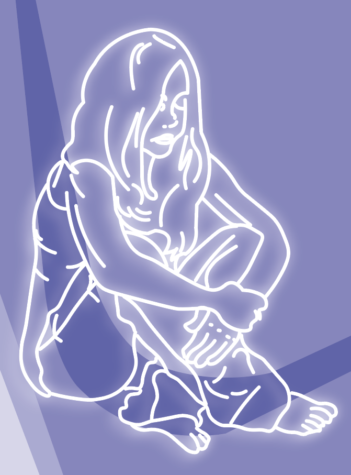Junior shares ideas for overcoming seasonal depression
With the approach of fall and winter, many teens may begin dealing with seasonal depression, which involves an individual feeling saddened or miserable in fall or winter, when it gets darker earlier and the days begin to become shorter.
It commonly occurs from the brain’s response to the annual changes in daylight.
Signs of seasonal depression might include changes in one’s mood, negative thoughts, low energy and changes in sleeping or eating.
For junior Lauren Ediger, seasonal depression is a significant part of her daily life during the winter months.
“I noticed the more severe down feelings when the days felt longer,” she said. “[It] almost felt miserable when it started getting cold out and [I]got in [a] slump.”
Teens who struggle with seasonal depression can find it hard to get through normal days or even do simple tasks.
“It made it hard to go out and do things and hard to take care of myself, like basic hygiene,” Ediger said. “I [also] wouldn’t want to do chores — you’re so isolated.”
With these heavy feelings brought onto students, it can severely affect their school life and grades. Teens will often feel tired, low on energy and have a lack of motivation to complete tasks. It can seem like everything takes too much effort. “My grades did suffer — I definitely saw them drop a lot in January, February and late December,” Ediger said. “I was very unmotivated, stressed out and overworked, [so seasonal depression] definitely affected my grades.”
From the stress of seasonal depression, teens can find it difficult to reach out or find solutions. To prevent the pressure during this time, Ediger has a way to cope.
“Music is kind of my thing,” she said. “Being able to hang out with friends and getting away [from] the house and not locked in your room [helps].” 
Ediger uses sources of therapy to assist her during these times. Therapy is one of the most common treatments for seasonal depression. According to Kidshealth.org, talking with a therapist helps relieve the negative thoughts and feelings associated with depression. It can ease the isolation or loneliness that people with depression often feel. Therapy helps one understand their condition and become educated on how to prevent future bouts of seasonal depression.
“I would definitely go talk to someone about [seasonal depression] because it is a real thing,” Ediger said. “You should take care of yourself, learn how to cope with things and better yourself during that hard time so you can get out of it.”

Ava McNiel is a senior and this is her second year on staff as a Photo Editor. Ava loves living life spontaneously and is up for any adventure at the drop...



